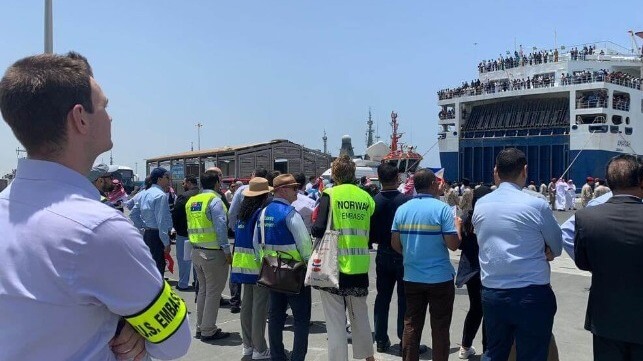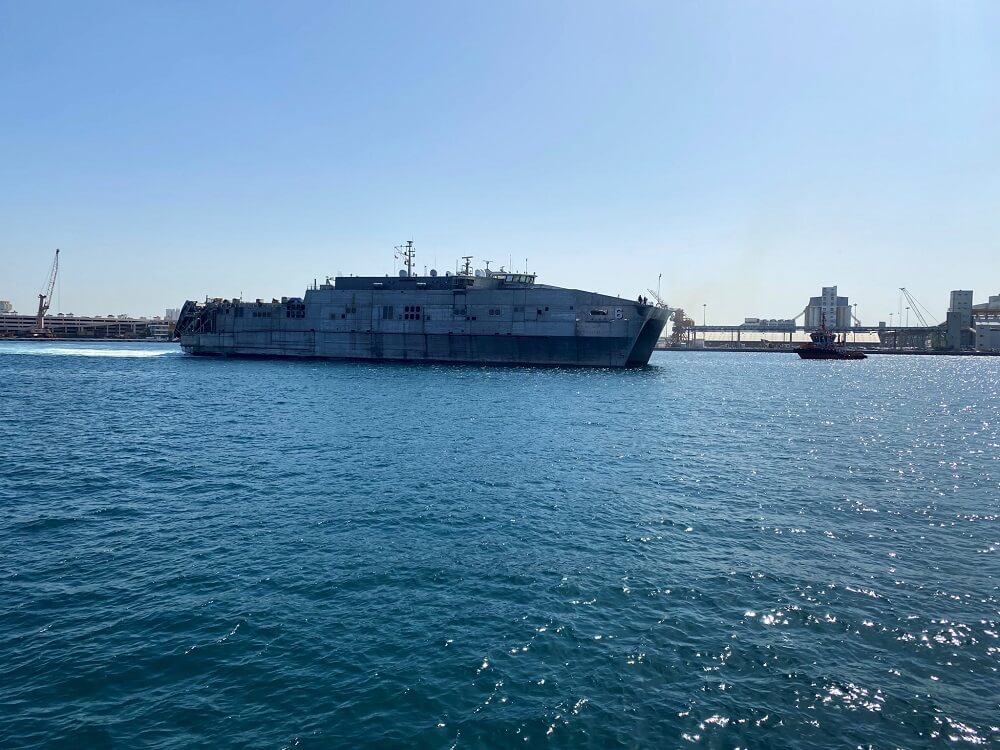Evacuation Sealift Continues in Port Sudan

Evacuation sealift operations continue in Port Sudan, as foreign nationals take advantage of a tenuous ceasefire to make their way to one of the last jumping-off points for transit out of the country.
After initially resisting calls to conduct a government-backed evacuation operation, the U.S. State Department organized three bus convoys from Khartoum to Port Sudan, with armed drones providing overwatch. The last convoy arrived Monday, and a State Department spokesperson told media that no further road transits were planned due to lack of demand.
The Military Sealift Command fast transport USNS Brunswick has made one crossing from Port Sudan to Jeddah, delivering a total of 300 people, including U.S. citizens. Brunswick departed Jeddah again on Tuesday at 1700 hours, then turned off her AIS as she moved away from Saudi waters. The Pentagon confirmed Tuesday that Brunswick returned to Port Sudan in order to be available if needed.

USNS Brunswick arrives in Jeddah (U.S. Embassy in Riyadh)
U.S. citizens and other foreign nationals continue to make the crossing, carried by a commercial ferry and by Royal Saudi Navy warships. According to NPR, Saudi ships have delivered at least 6,000 people across the Red Sea since the start of the crisis, and many others have made the trip aboard the ro/pax Amanah. As of Wednesday, Amanah was berthed in Port Sudan once more in preparation for another voyage.
As many as 800,000 people may opt to flee the country amidst ongoing violence, according to the UN's refugee agency, UNHCR. While foreigners can obtain short-term transit visas from Saudi Arabia, Sudanese nationals who wish to depart are limited to land border crossings, primarily into Egypt.

that matters most
Get the latest maritime news delivered to your inbox daily.
Meanwhile, aid is flowing in the opposite direction. To assist the Sudanese people and reduce the outflow of refugees, aid agencies are working to get their operations back up and running despite the disruption caused by heavy fighting.
"[We have] to be sure that we have the commitments publicly and clearly given by the two militaries, to protect humanitarian assistance, to deliver on the obligations to allow supplies for people to move, and that we should do that, and humanitarians universally do this, even when there is no formal natural ceasefire," said veteran UN peace negotiator Martin Griffiths, who deployed to Port Sudan this week for talks with the two warring factions.
